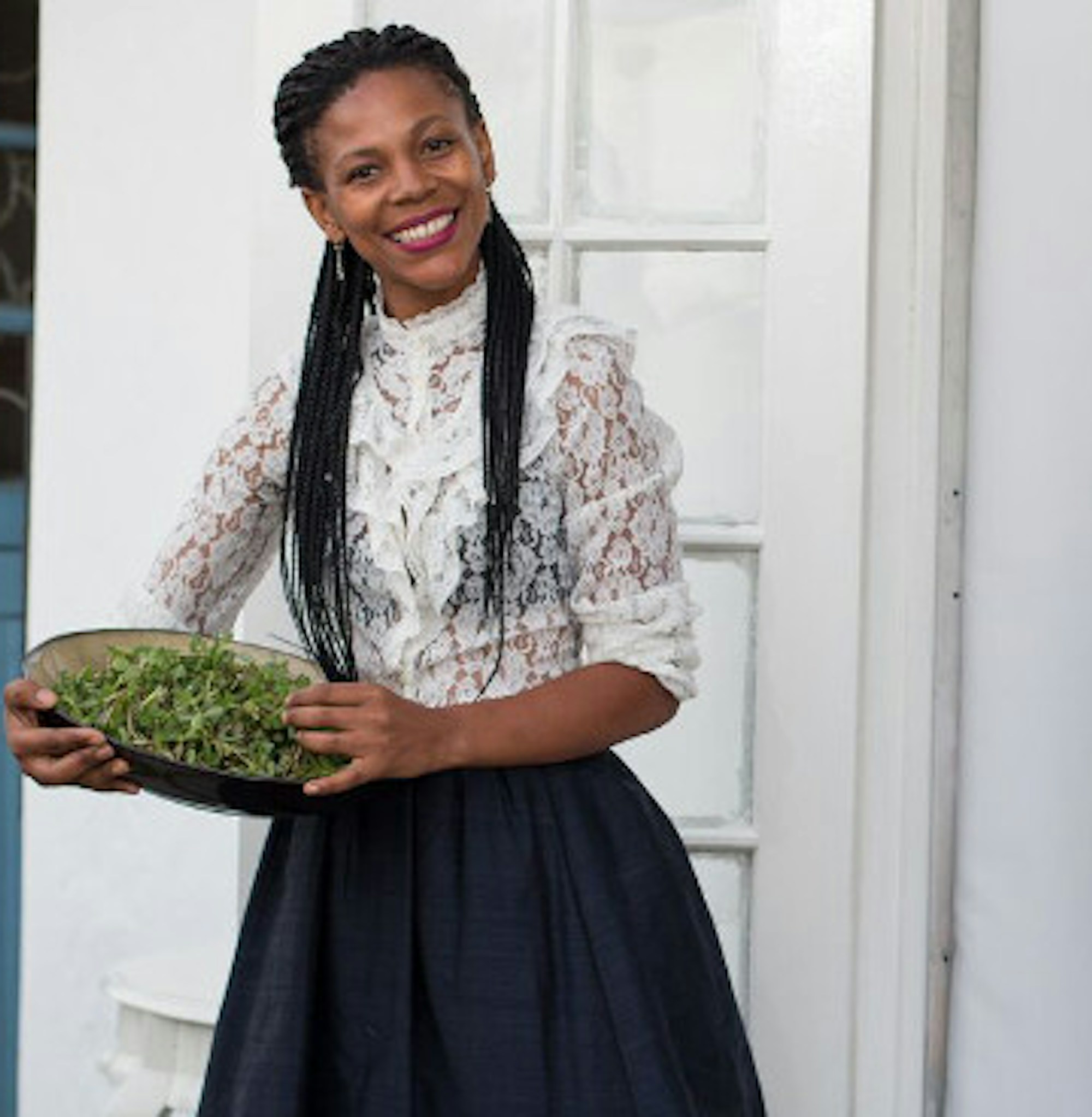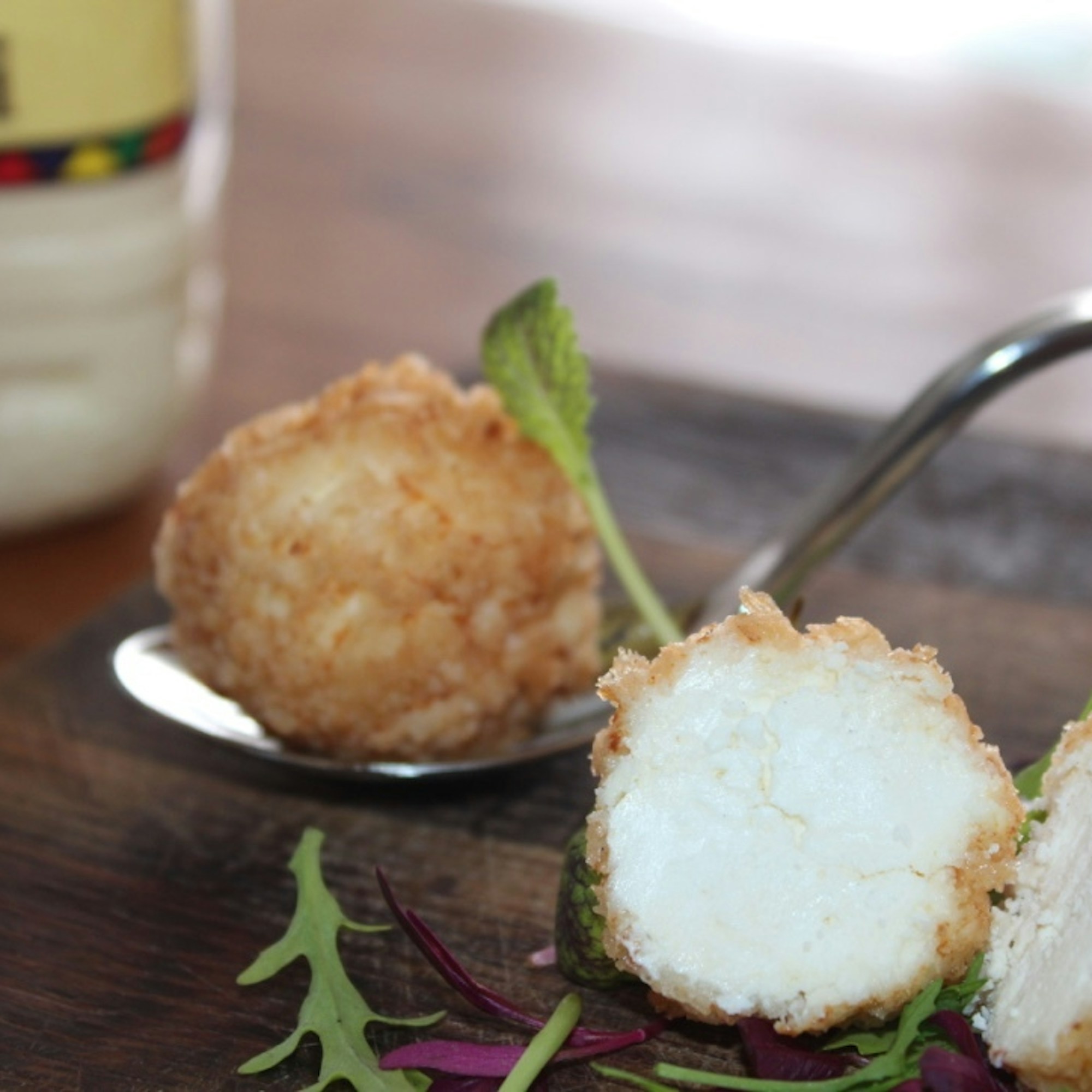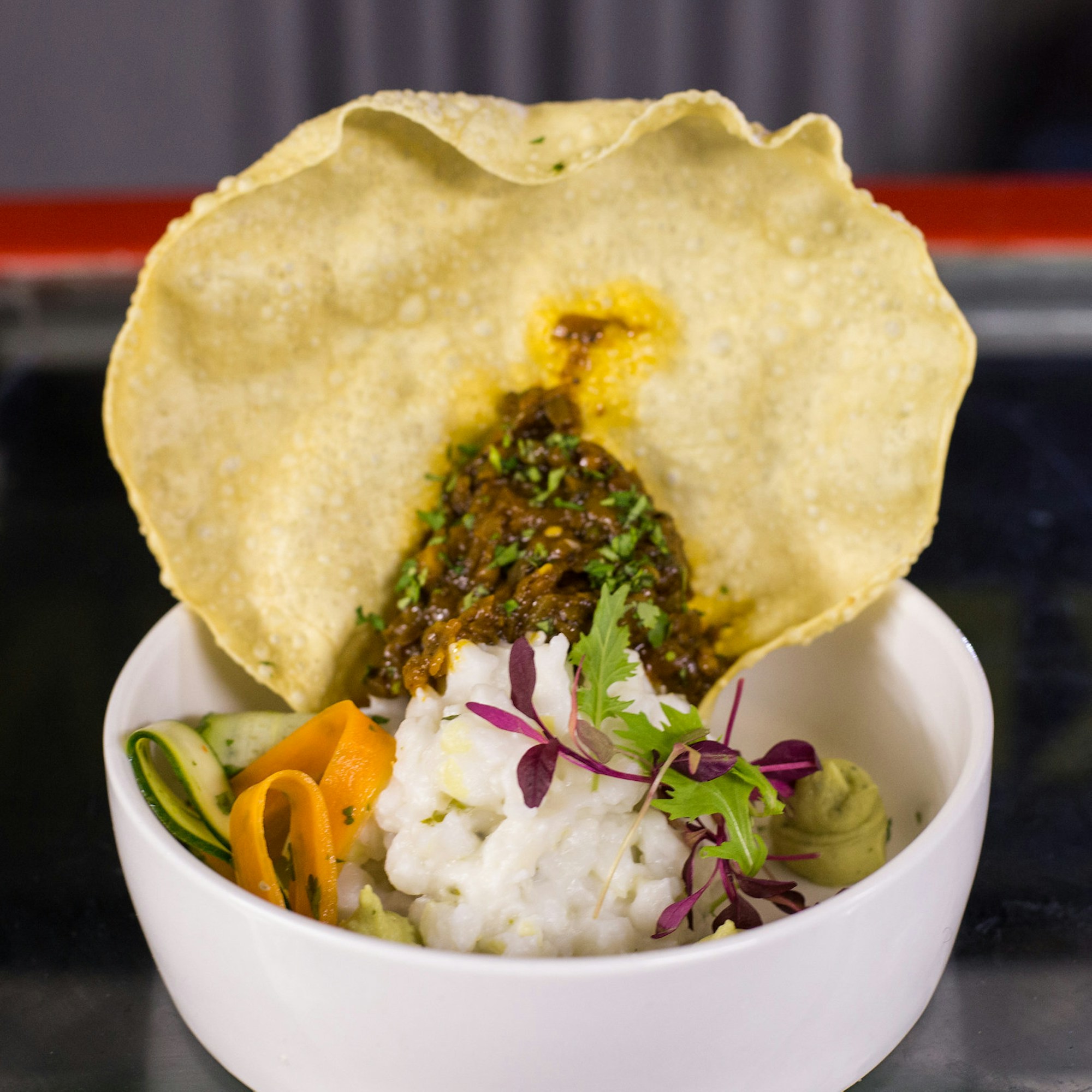Our featured Discoverer for the month, Abigail is changing the way people view township cuisine by returning to her roots, and adding a twist through her fine dining restaurant, 4roomed eKasi Culture.
A passionate local of the area, Abigail’s journey is fuelled by both a sense of nostalgia and a desire to bring healthier eating options to her hometown.
“In 2014, I entered Master Chef South Africa and finished in sixth position. I was the one who burnt the sugar,” laughs Abigail.
“When I first realised I made it into the top 12 [of Master Chef], I decided I wanted to use my talent to make a difference. When my husband and I came to the township on the weekend we noticed that the food served at the shisa nyama (barbeque) was usually meat accompanied by alcohol. We wanted to provide more options. I came back to the township with a purpose of introducing a healthier eating lifestyle.
“When people leave the township for the city, it often deprives the economy of the people earning income. It was clearly a trend, and another reason I opened the restaurant in Khayelitsha was to encourage the development of the township and its economy. I also wanted to get different people, from different cultures and backgrounds, into the township to experience what it has to offer.”
Abigail’s first attempt was centred on her food truck, which she brought in on the weekends, to provide locals with more options than the meat-heavy staples, but that proved a logistical nightmare, with the van chewing through petrol, making it too costly to manage indefinitely. She later bought a property and opened 4roomed eKasi Culture, which is made up of a fine dining restaurant, mphako and food truck in the township she grew up in - Khayelitsha.
The restaurant was borne from the concept of the four roomed homes of old, in which houses in the townships were made up of a kitchen, living room, and two bedrooms.
“People here used to be proud of their homes, how they dressed - my inspiration stems from that lifestyle. I also reflect on my own childhood memories. All those nice smells, when people used to plant their own fruit trees in the backyard, planted their own vegetable… You don’t see that anymore. What happened to that?
“I wanted to bring that back. So we put up planting boxes and started planting. On my birthday I asked for planting tools and compost. I have given that to neighbours as well, to encourage them to do the same.”
Abigail has combined her childhood memories with her passion for cooking, creating a truly unique dining experience in one of the country’s oldest townships.
“Cooking is always something I had a passion for. My mother cooked a lot, and I spent a lot of time in the kitchen helping her. I hardly cooked when she was still around, and it was only in high school that I started cooking for myself. I was the last born and I think she was worried about me getting burnt,” she laughs at the memory.
“My mother created a very positive culture around food. We always started from scratch, making the sauces from scratch. When I started cooking on my own, I did the same, then tried to develop and to try and do new things.
“In Cape Town we have many different influences and cultures. But you would be surprised at how similar we all are. Black and Afrikaans people grew up eating pap for example – our food is often very similar, it just has a different name. I use food to tell a South African story, because I don’t think we celebrate our food as much as other nations.
“We have so many Italian, Mexican and Chinese restaurants in South Africa, but not as many making traditional South African food.”
Abigail has already established something special in Khayelitsha, with her restaurant established, both with locals and foreign visitors, but she shows no signs of slowing down. She is already planning to open another restaurant, but perhaps more importantly is her motivation to encourage the local children to follow suit.
“I want to be a role model for the children here. The middle income earners leave and the kids see that and want to do the same, but we never engage with them, never encourage them or mentor them. I want to change that.”
For more information on 4roomed eKasi Culture click HERE








